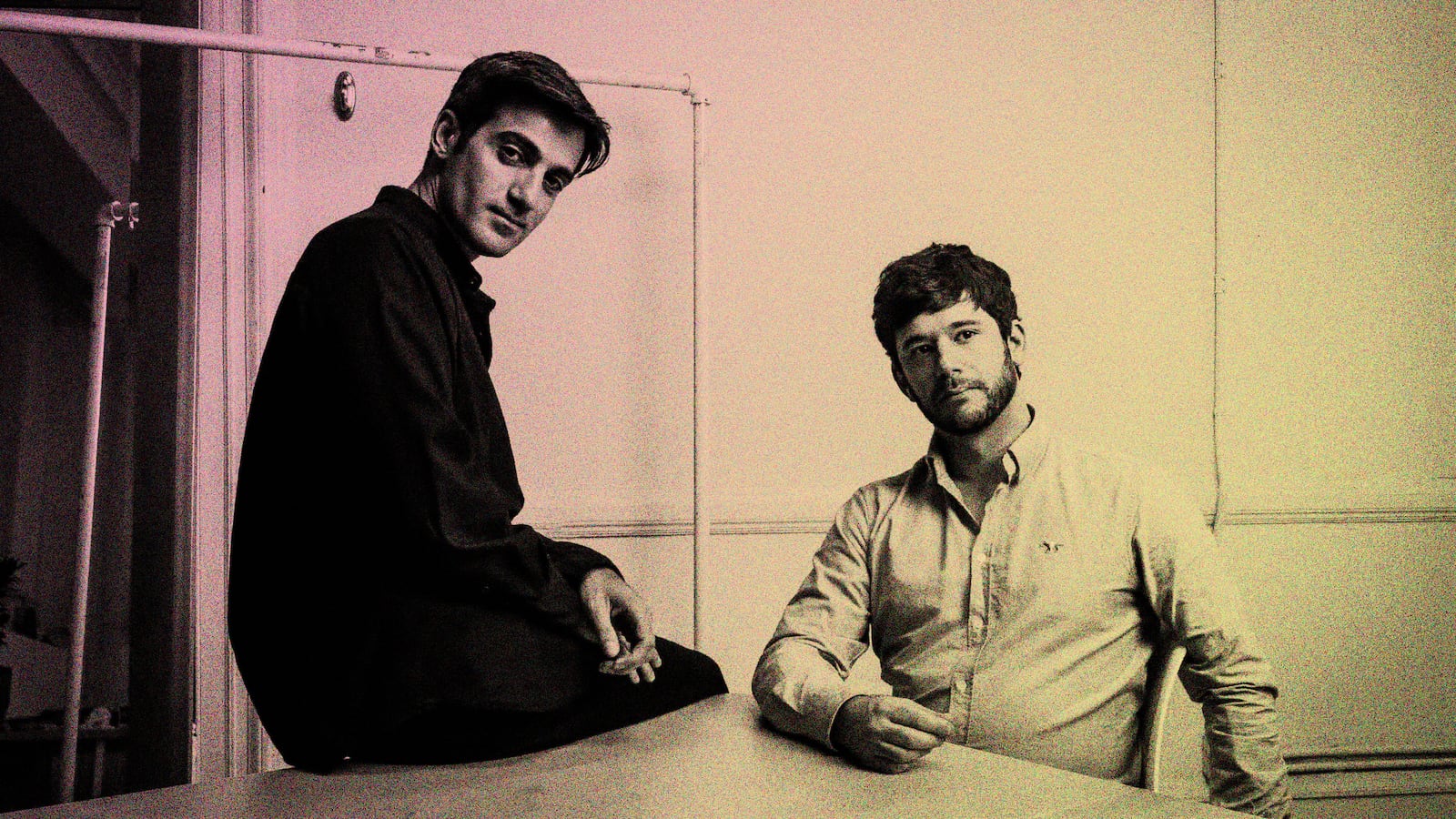HQ Trivia was a sensation that skyrocketed to success and pop-culture ubiquity as fast as it crashed and burned, making it yet another Icarus-like story of a tech triumph turning to failure.
Glitch: The Rise & Fall of HQ Trivia is mostly a nostalgia trip to a few short years ago, designed to explain what the hell went so horribly wrong with the game show. The cautionary tale is a familiar one. But it’s told with enough flashy verve and humor, along with a gossipy bombshell audio recording, to play as a breezy non-fiction look back at a phenom that had its 15 minutes—or, at least, enough time to get through an evening’s worth of quiz questions—in the smartphone spotlight.
Glitch: The Rise & Fall of HQ Trivia is a saga about foolishness and strife that has itself become mired in controversy, courtesy of Alyssa Bereznak, who claims that director Salima Koroma’s CNN documentary, which premieres Mar. 5, borrows heavily from her own similarly titled podcast, Boom/Bust: The Rise and Fall of HQ Trivia.
Given its subject matter, such misconduct accusations feel somewhat apt for the film, which initially concentrates on the meteoric ascension of HQ Trivia, a live-broadcast game that was played through a phone or streaming-TV app and enticed contestants with the chance to win money by answering a series of multiple-choice questions. It was a simple concept executed with efficient flair, marked by cutesy graphics, upbeat and comical sound effects, and a variety of hosts who quipped their way through each program—none better, and more inherently associated with the brand, than Scott Rogowsky.

Rogowsky sits down for an extensive interview in Glitch: The Rise & Fall of HQ Trivia, providing a first-hand account of his experiences with the game and company, both of which were the brainchild of partners Rus Yusupov and Colin Kroll, who had previously made industry names for themselves with Vine. Yusupov and Kroll’s sale of Vine to Twitter before it even launched made them an instant $30 million but was a decision they later regretted, since the app’s ensuing popularity (however brief its lifespan) suggested that they’d left considerable money on the table.
Once Vine was unceremoniously canceled by Twitter, they struck out on their own, and HQ Trivia was shortly thereafter born, viewed by creative-visionary Yusupov as a must-play nightly sensation, and by superstar-engineer Kroll as the maiden step in a mission to revolutionize televised content.
Yusupov doesn’t participate in Glitch: The Rise & Fall of HQ Trivia and Kroll died of a drug overdose on Dec. 16, 2018, thereby effectively cementing the company’s demise. Even so, the entrepreneurs’ voices are heard in archival interviews that support the film’s talking-head claims that Yusupov was the arrogant and attention-hungry striver (in one clip, he professes fandom for idols Mark Zuckerberg and Elon Musk) and Kroll was the media-shy techie who made the operation run.
They were a yin-yang pair who, at the start, complemented each other. HQ Trivia swiftly picked up a following not only because of its simplistic and cheery design and interface, but because of Rogowsky, a motor-mouthed comedian who asked questions and dispensed answers while delivering a non-stop barrage of one-liners.
Rogowsky is more subdued and mournful in Glitch: The Rise & Fall of HQ Trivia than he ever was on HQ Trivia, a byproduct of being put through the rapid-fire up-then-down wringer. Transformed overnight into a celebrity, Rogowsky reveled in his newfound fame and in HQ Trivia’s rapidly escalating user-count numbers, which by March 2018 were topping out at over 2 million players per game.

Fueled by reporter Taylor Lorenz’s infamous The Daily Beast profile that was meant to be just about Rogowsky but wound up also including Yusupov’s crazy objections to the piece—thereby outing him as a control-freak willing to badmouth his star performer—HQ Trivia became a word-of-mouth hit, eventually attracting a gaggle of A-list admirers in the process, such as Jimmy Kimmel and Dwayne ”The Rock” Johnson, both of whom guest-hosted for Rogowsky.
It was all too good to be believed, or to be sustained, and Glitch: The Rise & Fall of HQ Trivia’s second half lays out a familiar narrative of petty jealousies, bitter rivalries, and corporate backstabbing. Resentful of Rogowsky becoming the face of his creation, and intent on preventing Kroll from assuming CEO duties, Yusupov comes off the worst in Koroma’s documentary. Problems raising cash (even after a $15 million investment from Peter Thiel’s Founders Fund) soon mounted, as did glitches, complaints from users about receiving their winnings, and internal tensions.
In the film’s most eye-opening moment, Rogowsky plays a secret recording of Yusupov—on the eve of a vote to name the struggling company’s new CEO—offering to make Rogowsky HQ Trivia’s head honcho, and moreover, to create a reality-TV program that followed him around while he performed his new (and old) job.
It was an idea as bad as HQ Trivia’s management was screwy, although when Kroll subsequently assumed control of the ship, things momentarily looked up—even with a slowly declining user base—thanks to the impending release of the company’s big sophomore app, HQ Words. Unfortunately, Kroll’s untimely 2018 passing put the final figurative nail in HQ Trivia’s coffin, with Rogowsky bailing and the app shutting down in February 2020 (only to then resurrect itself a few months later in zombie form).
As made clear by the journalists, employees, and fans featured in Glitch: The Rise & Fall of HQ Trivia, it was a story as old as Silicon Valley, with unchecked ambition driving intense growth and, with it, all sorts of bad behavior, which in this case was mostly perpetrated by the app’s architects: Kroll was beset by nagging harassment claims (some of them sexual), and Yusupov was accused by Kroll (and others) of having potentially leaked those charges in order to gain the upper boardroom hand.
That HQ Trivia vanished almost as quickly as it appeared makes it no different from countless other flashes in the pan, and the lessons gleaned from its demise are by now clichéd. Nonetheless, there remains something particularly bittersweet about a game that virtually brought people together collapsing a mere month before the start of the 2020 COVID-19 quarantine.








